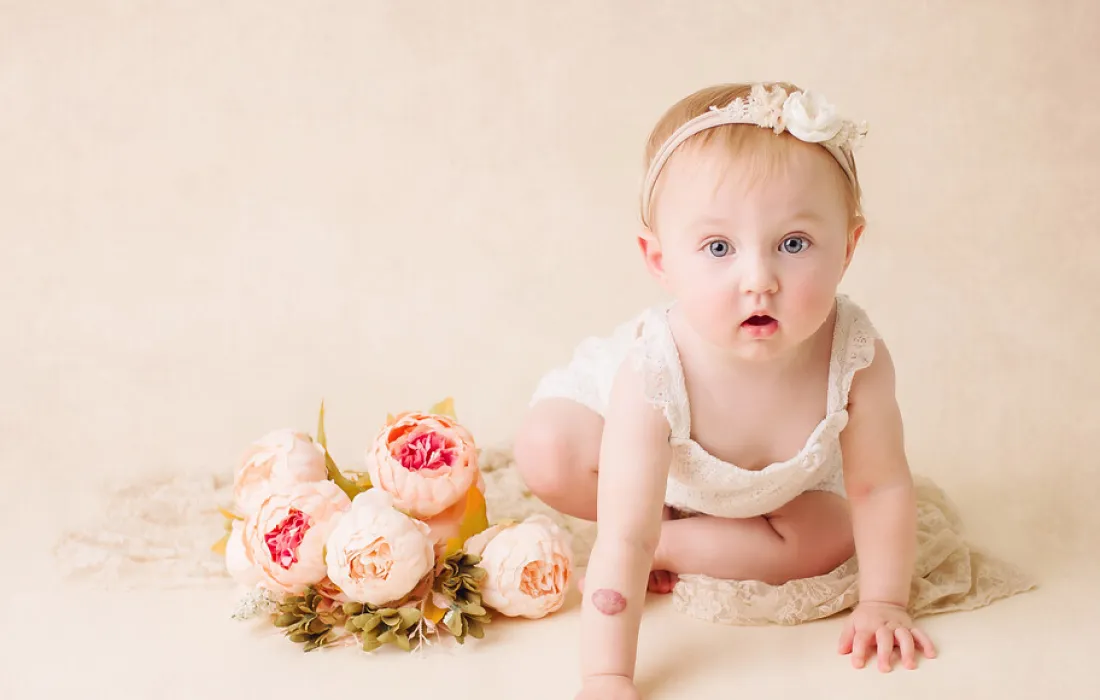Choosing a trending name for your baby is an exciting and cherished tradition observed by parents across the globe. For Muslim families, the selection of a baby’s name is a profound decision intertwined with religious and cultural importance. It is firmly believed that the trending name given to a child wields the power to influence their life and character. This comprehensive guide is meticulously crafted to aid Muslim parents in the intricate journey of naming their baby in accordance with Islamic principles, ensuring that the chosen trending names resonates with the family’s deeply rooted faith and values. Within these pages, we embark on a journey through the rich Islamic tradition surrounding baby names, offering a wealth of insights and considerations to guide you towards a well-informed choice.

Read more.. Unraveling the Fascinating World of Baby Names in India
Section 1: The Profound Significance of Baby Names in Islam
In Islam, names are imbued with profound significance, serving as a wellspring of identity and purpose. The act of naming a child carries a weighty religious duty, one that shapes the very essence of the individual. An exploration of the immense importance of names within Islamic tradition serves as the foundation for choosing a trending name that carries deep meaning and significance for your precious baby.

Read more.. How to Take Baby Names Related to Navratri on 2023
1.1. Names as a Trust from Allah:
- Names are a gift from Allah (God) and are believed to carry blessings.
- The Prophet Muhammad emphasized the importance of selecting good and meaningful names for children.
1.2. Influence on Character:
- It is believed that names can influence an individual’s character and destiny.
- Choosing a virtuous and meaningful name is thought to set a positive path for the child’s life.
 Read more.. How to Grow Business During Navratri 2023
Read more.. How to Grow Business During Navratri 2023
Section 2: The Guidelines for Choosing Islamic Baby Names
Selecting an Islamic baby name goes beyond personal preference. There are specific guidelines provided by Islamic tradition that parents should consider. These guidelines are rooted in the Quran and Hadith (sayings and actions of the Prophet Muhammad) and should be followed when naming a child.

Read more.. 25 Ways to Make Money Online, Offline, and at Home
2.1. Gender-Specific Names:
- In Islam, it is essential to choose unique names that clearly indicate the gender of the child.
- Names for girls should be feminine, while unique names for boys should be masculine.
2.2. Avoiding Names with Negative Meanings:
- Parents should avoid names that have negative or undesirable meanings.
- The name chosen should have a positive, virtuous, or meaningful connotation.
2.3. Avoiding Names of Prophets:
- While names of the Prophet Muhammad are highly respected, they are often avoided to prevent confusion and maintain reverence.
- However, names of other Prophets, such as Ibrahim (Abraham) and Musa (Moses), can be chosen.
2.4. Avoiding Names Associated with Polytheism:
- Names with associations to polytheistic beliefs should be avoided.
- Names that reflect Islamic monotheism are encouraged.
2.5. Honoring Family and Ancestry:
- It is a noble tradition to choose names that honor and connect the child to their family and heritage.
- Many Muslim families pass down names from one generation to the next.
Section 3: Islamic Baby Naming Customs Around the World
Islamic naming customs can vary across different cultures and regions. Here, we explore various customs and traditions from around the world, showcasing the rich diversity of Islamic names.
3.1. Arabic Names:
- Arabic names are common among Muslims worldwide due to the Quran being originally in Arabic.
- Many names reflect qualities and attributes, such as Karim (generous) and Amin (trustworthy).
3.2. Persian Names:
- Persian names are prevalent in regions with Persian-speaking Muslim populations.
- These names often carry poetic and historical significance, such as Rumi or Hafez.
3.3. South Asian Names:
- South Asian Muslims often have distinct naming customs.
- Names from Urdu and Hindi languages are commonly chosen, like Ayesha or Farhan.
3.4. African Names:
- Muslims in various African regions have diverse naming traditions.
- Names may reflect local languages and cultural values, such as Kibibi (little lady) or Baraka (blessing).
3.5. Southeast Asian Names:
- In Southeast Asia, Muslims often have names influenced by local cultures.
- Names may be a blend of Islamic and indigenous elements, like Nurul (light) or Putra (son).
Section 4: Baby Naming Trends in the Modern Islamic World
The Islamic world, like other cultures, experiences naming trends that evolve over time. As society changes, so do the preferences for baby names. Here, we explore some contemporary naming trends within the Muslim community.
4.1. Reviving Traditional Names:
- Many parents are choosing to revive traditional and timeless Islamic names that may have fallen out of fashion.
- Names like Omar, Fatima, and Zainab are experiencing a resurgence.
4.2. Unique and Modern Names:
- Some parents opt for unique names that have a positive and meaningful connotation.
- These names may blend Arabic or Quranic elements with contemporary sounds.
4.3. Nature-Inspired Names:
- Naming children after natural elements, such as flowers, animals, or celestial bodies, has gained popularity.
- Names like Yasmin (jasmine) or Sami (elevated) exemplify this trend.
4.4. Compound Names:
- Compound names, formed by combining two words or names, offer a more intricate and meaningful identity.
- Examples include Muhammad Ali (the name of the Prophet and “exalted”).
4.5. Gender-Neutral Names:
- Some Muslim families are exploring gender-neutral names that reflect inclusivity and equality.
- Names like Noor (light) and Amal (hope) can be used for boys or girls.
Section 5: A Practical Guide to Choosing an Islamic Baby Name
Selecting an Islamic baby name involves careful consideration, and it can be a rewarding process. This section offers practical advice to help parents choose a name that aligns with their faith and values.
5.1. Seek Spiritual Guidance:
- Consult with a knowledgeable religious scholar or imam for guidance and blessings when choosing a name.
5.2. Understand the Meaning:
- Research the meanings and origins of names to ensure they align with Islamic values.
5.3. Consider Pronunciation:
- Choose a name that is easily pronounceable by family and friends.
5.4. Family Input:
- Involve family members in the naming process, as their suggestions may hold special significance.
5.5. Reflect on Personal Values:
- Think about your family’s unique values and what you want the name to represent.
Section 6: Registering Your Child’s Name
Once you’ve chosen an Islamic name for your baby, it’s essential to register it officially. This ensures that the name is recognized on legal documents, educational records, and identification.
6.1. Legal Requirements:
- Follow the legal requirements in your country or state for registering your child’s name.
6.2. Birth Certificate:
- Ensure that the chosen name is correctly recorded on your child’s birth certificate.
6.3. Inform Relatives and Community:
- Share your child’s name with family, friends, and the community to establish their identity.
Conclusion:
Selecting an Islamic baby name is a cherished and significant tradition, forging a spiritual link between your child and the cherished values of your family. It is a decision that will accompany them throughout their life’s journey. By following Islamic guidelines and considering your personal values, you can select a name that embodies the blessings and aspirations you hold for your child. Whether you opt for a traditional name or a modern trend, the process should be a reflection of love, faith, and a bright future.
